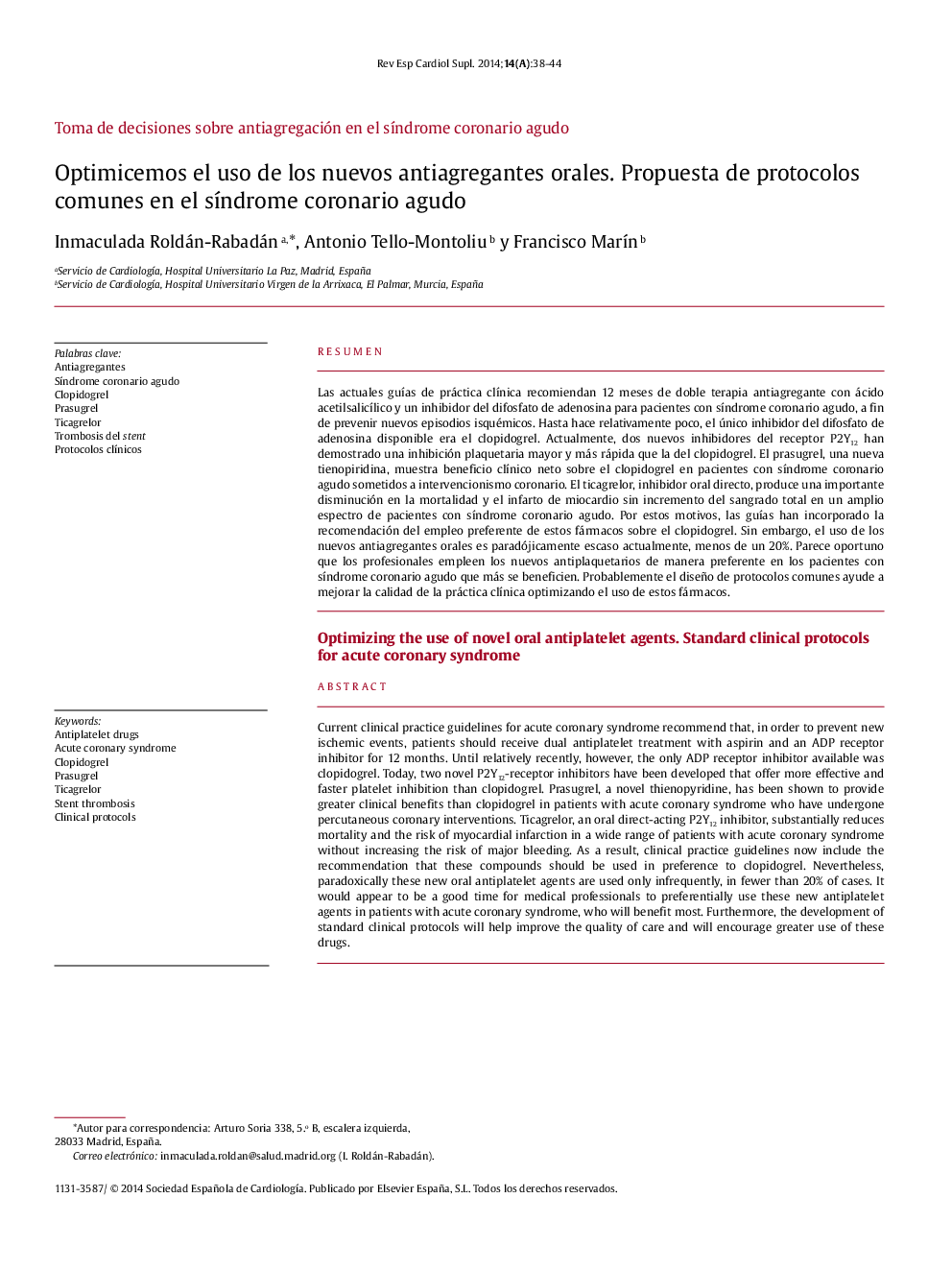| Article ID | Journal | Published Year | Pages | File Type |
|---|---|---|---|---|
| 3019468 | Revista Española de Cardiología Suplementos | 2014 | 7 Pages |
ResumenLas actuales guías de práctica clínica recomiendan 12 meses de doble terapia antiagregante con ácido acetilsalicílico y un inhibidor del difosfato de adenosina para pacientes con síndrome coronario agudo, a fin de prevenir nuevos episodios isquémicos. Hasta hace relativamente poco, el único inhibidor del difosfato de adenosina disponible era el clopidogrel. Actualmente, dos nuevos inhibidores del receptor P2Y12 han demostrado una inhibición plaquetaria mayor y más rápida que la del clopidogrel. El prasugrel, una nueva tienopiridina, muestra beneficio clínico neto sobre el clopidogrel en pacientes con síndrome coronario agudo sometidos a intervencionismo coronario. El ticagrelor, inhibidor oral directo, produce una importante disminución en la mortalidad y el infarto de miocardio sin incremento del sangrado total en un amplio espectro de pacientes con síndrome coronario agudo. Por estos motivos, las guías han incorporado la recomendación del empleo preferente de estos fármacos sobre el clopidogrel. Sin embargo, el uso de los nuevos antiagregantes orales es paradójicamente escaso actualmente, menos de un 20%. Parece oportuno que los profesionales empleen los nuevos antiplaquetarios de manera preferente en los pacientes con síndrome coronario agudo que más se beneficien. Probablemente el diseño de protocolos comunes ayude a mejorar la calidad de la práctica clínica optimizando el uso de estos fármacos.
Current clinical practice guidelines for acute coronary syndrome recommend that, in order to prevent new ischemic events, patients should receive dual antiplatelet treatment with aspirin and an ADP receptor inhibitor for 12 months. Until relatively recently, however, the only ADP receptor inhibitor available was clopidogrel. Today, two novel P2Y12-receptor inhibitors have been developed that offer more effective and faster platelet inhibition than clopidogrel. Prasugrel, a novel thienopyridine, has been shown to provide greater clinical benefits than clopidogrel in patients with acute coronary syndrome who have undergone percutaneous coronary interventions. Ticagrelor, an oral direct-acting P2Y12 inhibitor, substantially reduces mortality and the risk of myocardial infarction in a wide range of patients with acute coronary syndrome without increasing the risk of major bleeding. As a result, clinical practice guidelines now include the recommendation that these compounds should be used in preference to clopidogrel. Nevertheless, paradoxically these new oral antiplatelet agents are used only infrequently, in fewer than 20% of cases. It would appear to be a good time for medical professionals to preferentially use these new antiplatelet agents in patients with acute coronary syndrome, who will benefit most. Furthermore, the development of standard clinical protocols will help improve the quality of care and will encourage greater use of these drugs.
